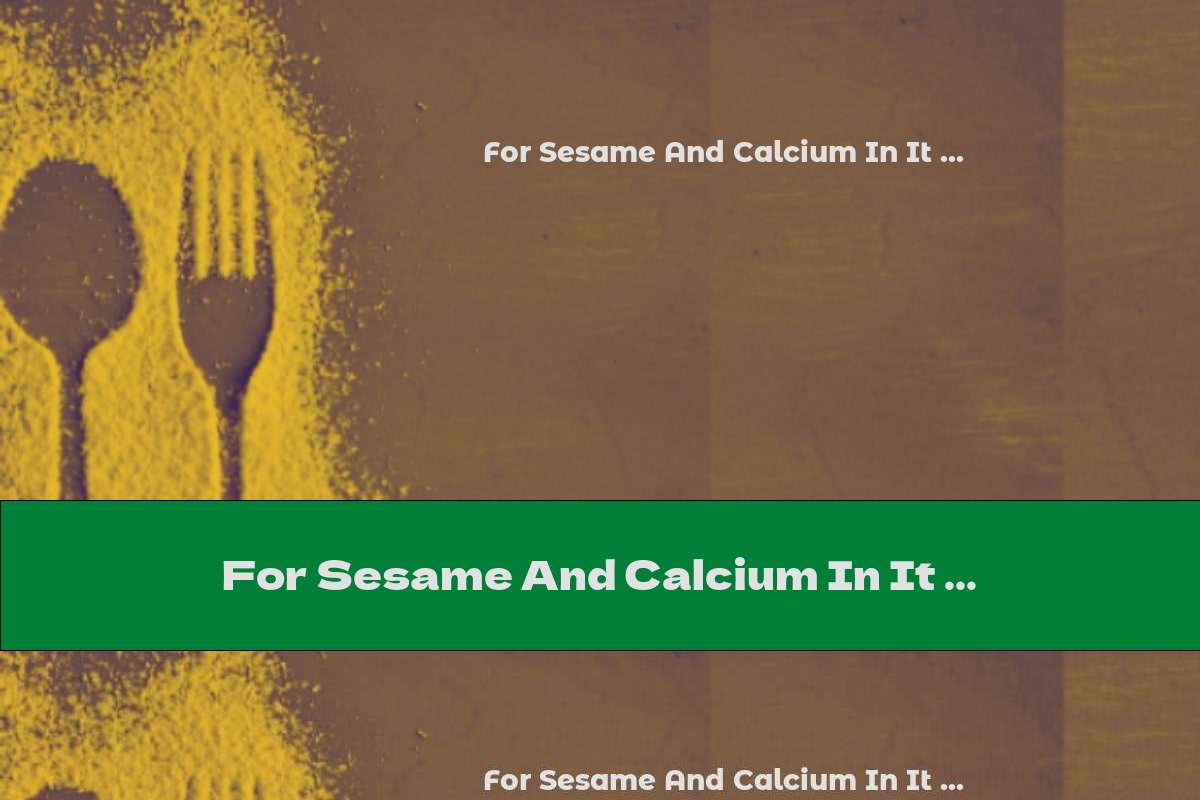For Sesame And Calcium In It ...
 Author: Joe Fowler
Time for reading: ~1
minutes
Last Updated:
February 12, 2026
Author: Joe Fowler
Time for reading: ~1
minutes
Last Updated:
February 12, 2026

In this article, learn more about For Sesame And Calcium In It .... Due to its high calcium content, sesame is considered one of its main sources..
Sesame seeds ( Sesamun indicum ) is a tasty and useful addition to many Asian dishes and more. The main ingredient is in sesame tahini and sweet traditional halva from the Middle East.
Sesame seed oil is extremely valuable in cooking because of its resistance to rancidity and spoilage.
The seeds are rich in monounsaturated fatty acids, especially oleic acid, which helps lower levels of "bad" LDL cholesterol and increase "good" HDL.
Sesame is a good source of manganese, copper, magnesium, iron, phosphorus, calcium, vitamin B1 , zinc and dietary fiber.
Only 1/4 cup of sesame seeds provides the body with 74% of the recommended daily intake of honey, 31.6% - of magnesium and 35.1% - of calcium. They play a vital role in bone mineralization, in the synthesis of hormones and red blood cells , enzymes, and in regulating cardiac activity.
Due to its high calcium content, sesame is considered one of its main sources.
Calcium in the human body is about 1200 - 1500 g. Ninety-nine percent of it is concentrated in the bones and teeth. However, its constructive function is far from the only one. Calcium is also involved at the level of the cell membrane, ensuring its stability, viscosity, permeability .
The amount of calcium in sesame varies depending on whether the seeds are peeled or not. One tablespoon of unpeeled seeds contains about 88 mg of calcium . In one tablespoon peeled - about 37 mg, which is 60% less.
Sesame tahini is made from peeled seeds , ie the calcium content in it is less.
Experts explain that in the sesame peels themselves, calcium can be found in the form of calcium oxalate, which is much less digestible by the body. For this reason, the question arises whether the additional 51 mg of calcium from unpeeled seeds is worth considering the fact that they are more difficult to absorb?
The recommended daily dose of calcium for adults is about 800 mg, up to1000 mg for adolescents , slightly lower for infants - 500 mg and children - 600-800 mg.
Related Articles
- The Ultimate Guide to Calcium Carbonate in Nutrition
- Nutritional Benefits of Cow Milk: Importance of Calcium, Vitamins, and Protein
- Nutritional Benefits of Cottage Cheese: Protein, Calcium, and More
- The Ultimate Guide to Calcium Lactate in Nutrition: Benefits, Sources, and Recipes
- The Power of Calcium Lactate: Benefits for Nutrition